Will Malignant Stupidity Kill the World Economy?
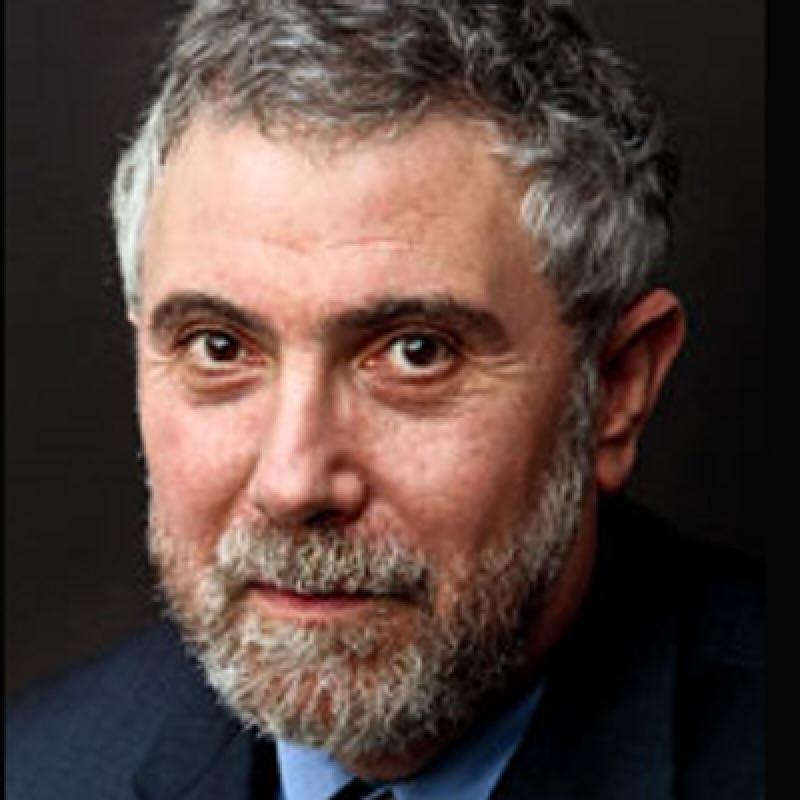


A quick thank you to my readers. When I struck out on my own, I wasn't sure if anyone would follow. But I just passed 300K subscribers. I'll try to be worthy of your support.
America created the modern world trading system. The rules governing tariffs and the negotiating process that brought those tariffs down over time grew out of the Reciprocal Trade Agreements Act, devised by FDR in 1934. The growth in international trade under that system had some negative aspects but was on balance very good for America and the world. It was, in fact, one of our greatest policy achievements.
Yesterday Donald Trump burned it all down. Here's what just happened to the average U.S. tariff rate:
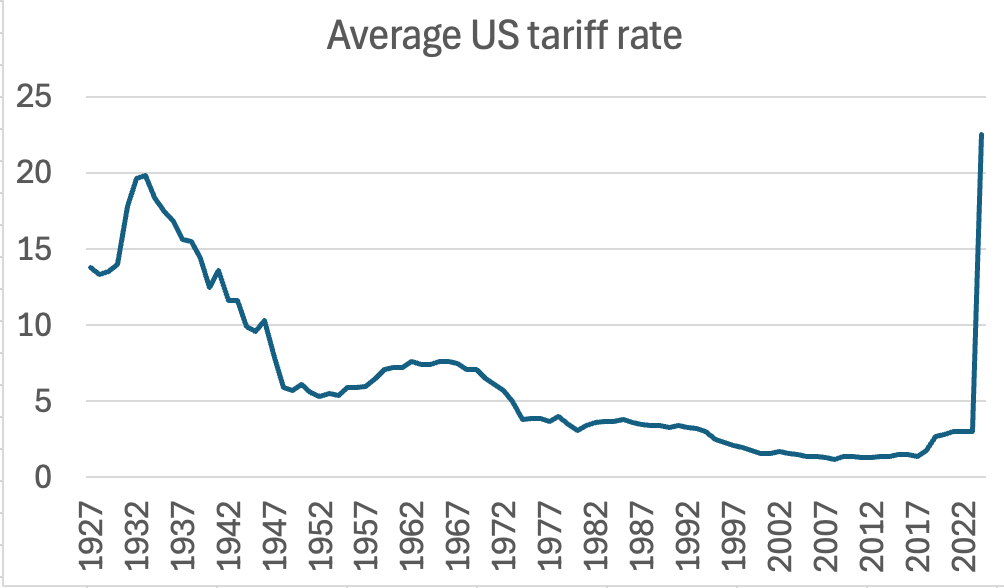
Source: USITC and Yale Budget Lab
The tariffs Trump announced were higher than almost anyone expected. This is a much bigger shock to the economy than the infamous Smoot-Hawley tariff of 1930, especially when you bear in mind that international trade is about three times as important now as it was then.
The size of the tariffs, however, wasn't the only shocking thing about the Rose Garden announcement. Arguably what we learned about how the Trump team arrived at those tariff rates — the sheer malignant stupidity of the whole thing — was even worse.
You might be tempted to dismiss complaints about the policy process as elitist snobbery. But credibility is a crucial part of policymaking. Businesses can't plan if they have no idea what to expect next. Foreign governments won't make policies that help America if they don't expect us to respond rationally.
So what do we know about how the Trumpists arrived at their tariff plan? Trump claimed that the tariff rates imposed on different countries reflected their policies, but James Surowiecki soon noted that the tariffs applied to each country appeared to be derived from a crude formula based on the U.S. trade deficit with that country. Trump officials denied this, while at the same time the Office of the U.S. Trade Representative released a note confirming Surowiecki's guess. Here's their explanation:
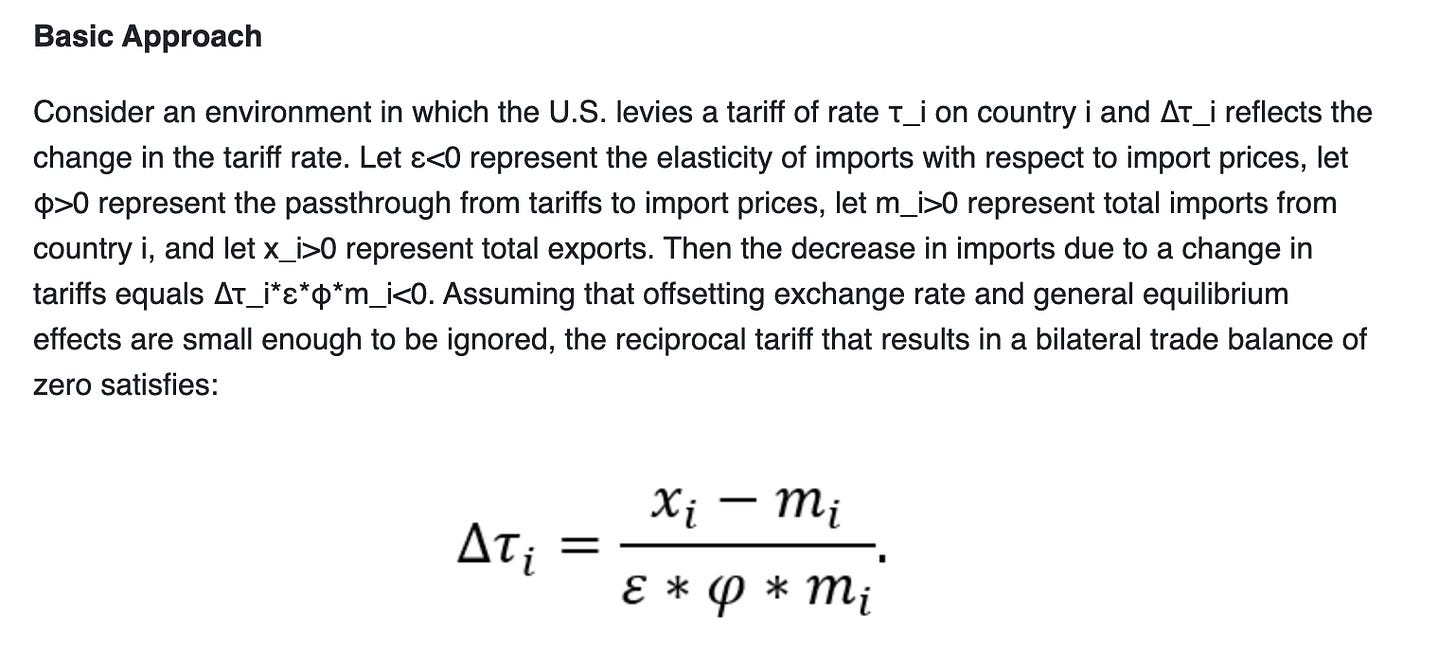
Source: USTR
Ignore the Greek letters, which cancel each other out. This says that the assumed level of a country's protectionism is equal to its trade surplus with America divided by its exports to America.
Trump also set minimum tariffs of 10 percent on everyone, which means among other things imposing tariffs on uninhabited islands.
There's so much wrong with this approach that it's hard to know where to start. But one easy thing to point out is that the Trump calculation only considers trade in goods, while ignoring trade in services. This is a big omission. Notably, the European Union runs a substantial surplus with us if you only look at trade in goods — but this is largely offset by an EU deficit in services trade:
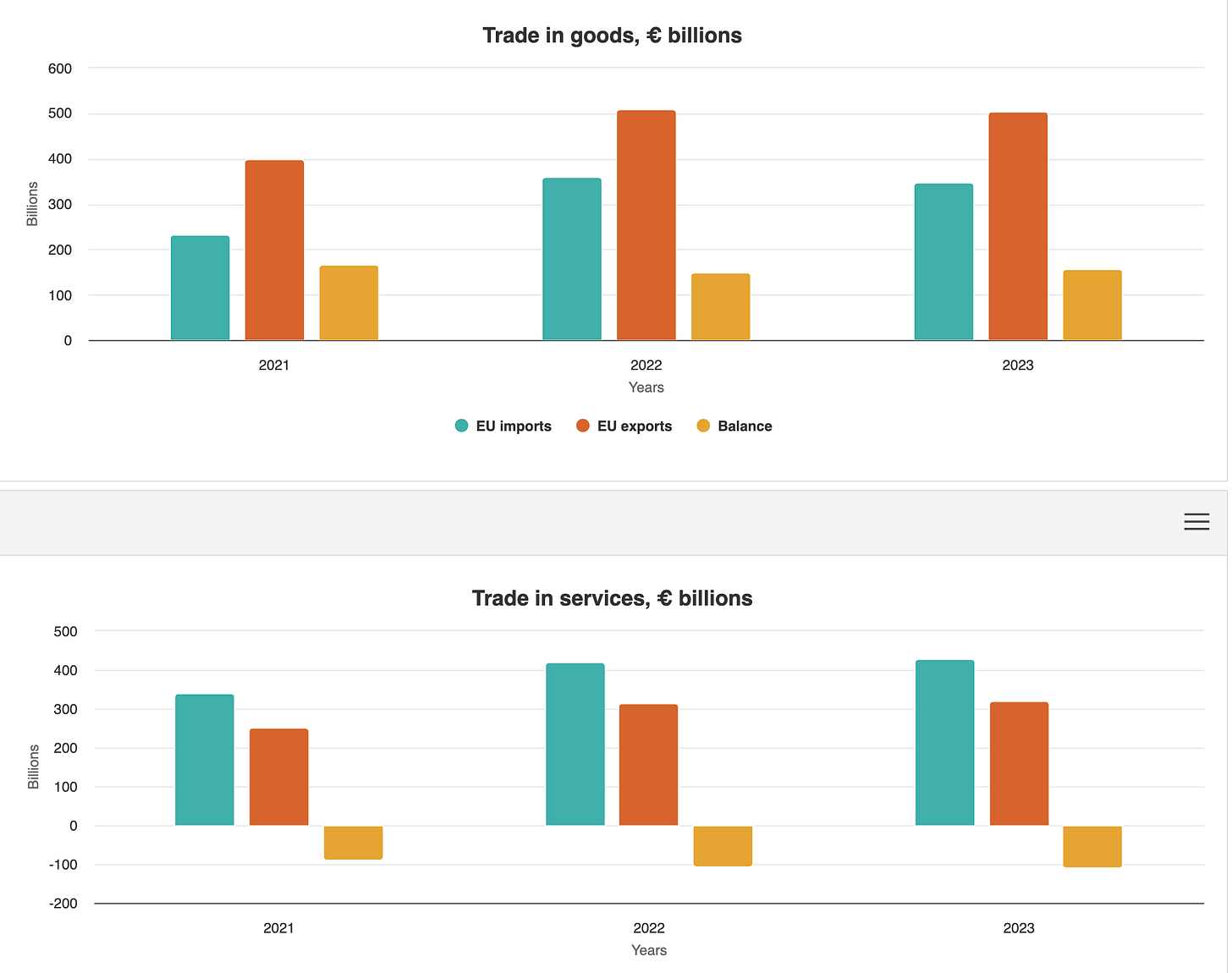
Source: European Commission
So if Trump's people had plugged all trade with the EU, not just trade in physical goods, into their formula they would have concluded that Europe is hardly protectionist at all.
Where is this stuff coming from? One of these days we'll probably get the full story, but it looks to me like something thrown together by a junior staffer with only a couple of hours' notice. That USTR note, in particular, reads like something written by a student who hasn't done the reading and is trying to bullshit their way through an exam.
But it may be even worse than that. The Trump formula is apparently what you get if you ask ChatGPT and other AI models to make tariff policy:
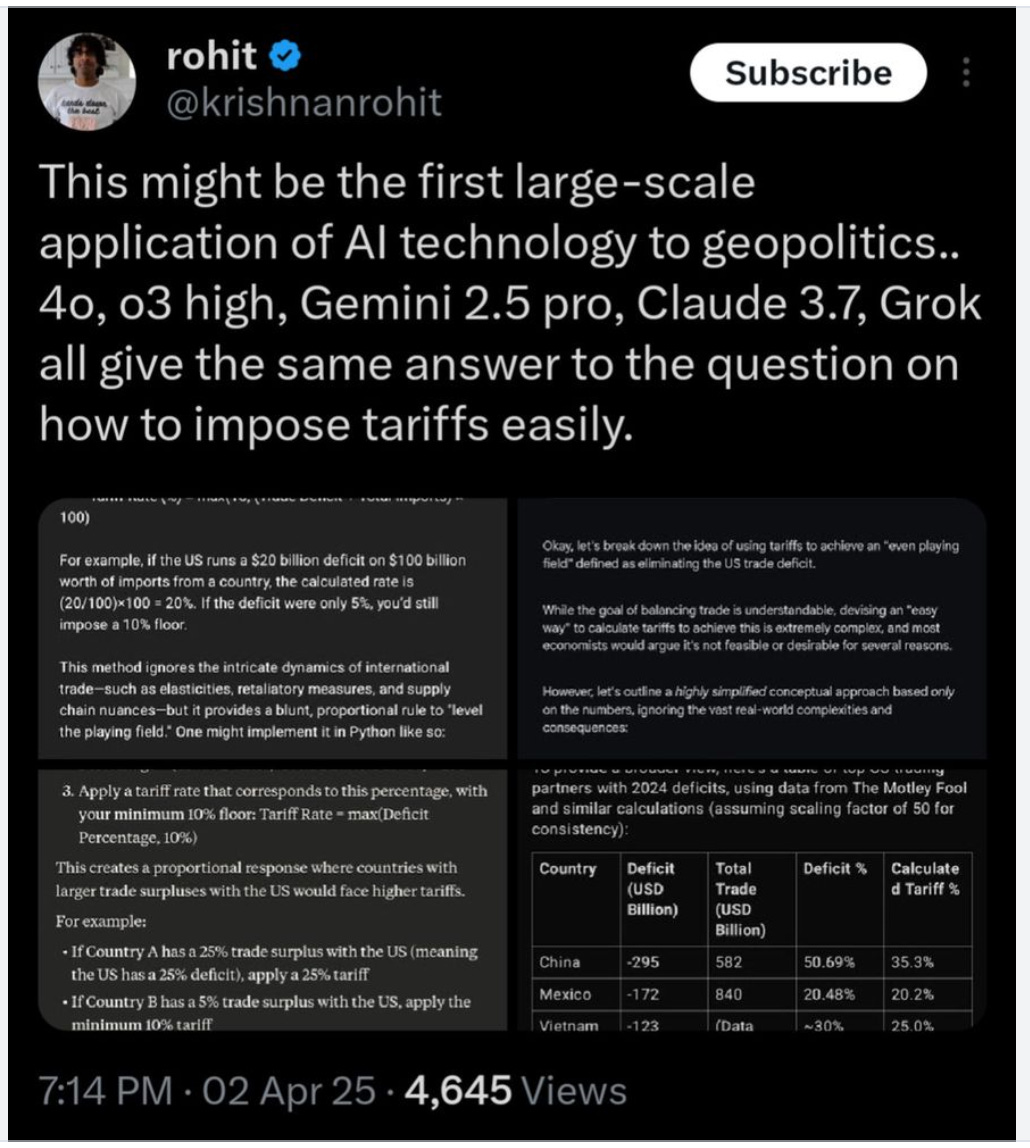
In my post immediately following the Trump announcement I speculated that Elon Musk's Dunning-Kruger kids might be responsible for those tariff numbers. That now looks like a distinct possibility.
Who makes policy this way? The key point is that Trump isn't really trying to accomplish economic goals. This should all be seen as a dominance display, intended to shock and awe people and make them grovel, rather than policy in the normal sense.
Again, I'm not being snobbish here. When the fate of the world economy is on the line, the malignant stupidity of the policy process is arguably as important as the policies themselves. How can anyone, whether they're businesspeople or foreign governments, trust anything coming out of an administration that behaves like this?
Next thing you'll be telling me that Trump's people are planning military actions over insecure channels and accidentally sharing those plans with journalists. Oh, wait.
I'd like to imagine that Trump will admit that he messed up, cancel the whole thing, and start over. But he won't, because that would spoil the dominance display. Ignorant irresponsibility is part of the message.
Whatever







"malignant stupidity"
It really is a historical fact that organized labor and union membership has declined as our trade deficits have increased. And it's no secret that loss of union jobs coincides with rising income and wealth disparities. These facts are too easy to find and verify.
Paul Krugman advocates for economic policies that are not pro-labor. Some of Krugman's advocacy has definitely been anti-labor. It's not difficult to guess which side of the economic divide Paul Krugman represents.
The political left has ceded the high ground to Trump. Trump is the one defending American jobs and protecting American labor. Why have those on the left side of the political scale abandoned labor? The political left has thrown union labor under the bus just to oppose Trump. There can't be a worker's revolution without workers.
Sean O'Brien and the Teamsters might end up in the Republican tent because of Trump's tariffs. And if the Teamsters go, then the UAW, USW, UMW, and other unions will likely follow. None of Paul Krugman's gibberish can turn that around.